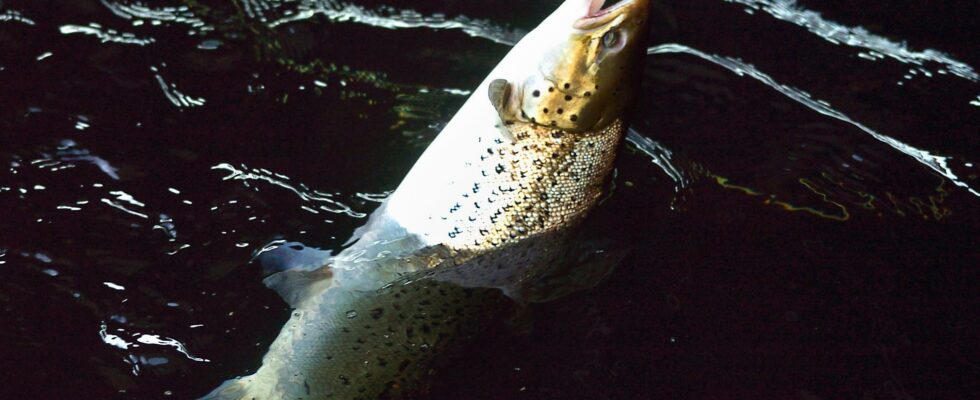unsaveSave
expand-left
fullscreen The salmon are at risk of becoming smaller due to fishing early in the year. Archive image. Photo: Björn Larsson Ask/TT
Early fishing of salmon in the Baltic Sea can have a negative effect on growth and cause the fish to become smaller, according to a new study conducted at the University of Helsinki.
A mapping of the genetic mass of Baltic salmon shows that the larger and older salmon, some of which carry the so-called “large salmon trait”, often migrate already in late spring and early summer. It is important that the strong individuals are allowed to live on in order to reproduce.
“Intensive salmon fishing during the early summer can lead to salmon with a tendency to grow large becoming more rare and the salmon that spawn becoming younger and smaller in size,” says researcher Antti Miettinen at the University of Helsinki in a press release.
The study analyzed thousands of wild salmon that were caught between 1928 and 2020. Salmon with the “big salmon trait” appeared more often in the catch in early summer than later in the fishing season.
“The discovery suggests that if fishing is concentrated at a certain time, it can bring about evolutionary changes in the salmon’s sexual maturity and thus affect the size of the salmon that migrate to the river and become available for fishing,” explains Miettinen.
He believes that it is important to take this into account when regulating fishing in order to preserve the viability of salmon stocks.
